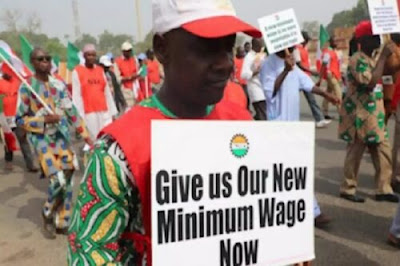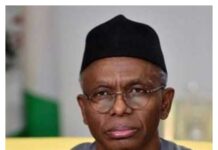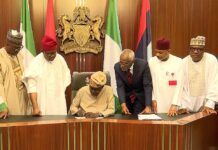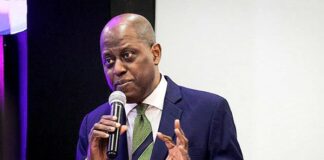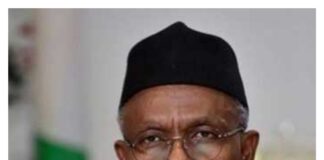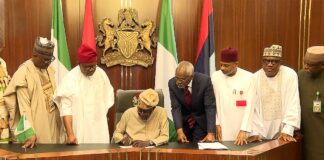The Federal Government and the States have begun preliminary discussions on raising the minimum wage.
The debates’ outcomes will influence the Minimum salary Review Committee in developing a new salary for workers.
This is part of the effort to reduce the surge in inflation caused by the elimination of the petrol subsidy and the unification of currency rates.
It is one of Labour’s core demands to alleviate the pain of subsidy removal for employees.
However, the government does not support a pay increase of 100 percent.
“There is a reference to minimum wage only, not a doubling of every worker’s salary. That is misinformation.
“It’s important that we do not get ahead of ourselves and allow the Minimum Wage Review Committee to come to its conclusions as negotiations between the federal and state governments evolve.
“What we know now is that there is consensus that an upward review of the national minimum wage is now in order,” a spokesman to President Bola Ahmed Tinubu, Ajuri Ngelale said last night.
Former President Muhammadu Buhari on April 18, 2019, signed the new Minimum Wage Bill of N30,000.
A few of the states are yet to implement the minimum wage, while some others, such as Imo, recently increased the minimum wage to N40,000.
Before the increase by the Buhari administration, the minimum wage was N18,000.
On palliatives for the withdrawal of petrol subsidy, Ngelale reassured that President Tinubu would keep faith with all the plans rolled out for Nigerians.
He said: “The President has given a very concrete implementation timeline on the robust set of relief package he has detailed in his most recent speech.
“The end of the first quarter of 2024 is the timeframe for rounding off agricultural interventions and MSMEs (Small and Medium Scale Enterprises) capitalization interventions.
“The CNG (Compressed Natural Gas) supply side and demand side reforms will run in multiple phases, ending between the second quarter of 2024 and the first quarter of 2025.”
In a broadcast last Monday, President Tinubu unfolded a raft of relief packages to cushion petrol subsidy removal pain.
These included the release of over N275 billion to boost the manufacturing sector and the MSMEs.
The President also said talks were on with Labour on the upward review of salaries.
He added that once the terms were agreed on a new minimum wage, budget provisions would be made to cover the review.
He commended the organizations in the private sector that had already taken the initiative to increase remunerations.
“In the same vein, we are also working in collaboration with the Labour unions to introduce a new national minimum wage for workers. I want to tell our workers this: your salary review is coming.
“Once we agree on the new minimum wage and general upward review, we will make budget provisions for it for immediate implementation,” the President said.
Labour had, among others, demanded a pay rise following the petrol subsidy withdrawal, with some chapters asking for N200,000.

